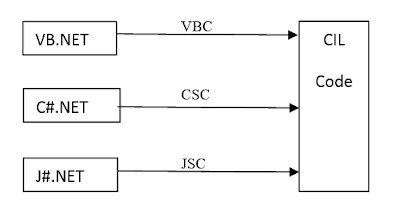Description:We can concatenate multiple rows within single row using predefined function STUFF available in SQL Server. Here is the example.
- Create Database. Eg: StudentCourseDB (In this example)
Create Database StudentCourseDB
-
Create 2 Tables(Courses, StudentCourses)
Courses
Create Table Courses(CourseID int primary key,CourseName nvarchar(20)) - Add some records in Courses Table
INSERT INTO Courses(CourseId,CourseName) VALUES (1,'C#')INSERT INTO Courses(CourseId,CourseName) VALUES (2,'ASP.Net')INSERT INTO Courses(CourseId,CourseName) VALUES (3,'MVC')INSERT INTO Courses(CourseId,CourseName) VALUES (4,'WCF')INSERT INTO Courses(CourseId,CourseName) VALUES (5,'Share Point')INSERT INTO Courses(CourseId,CourseName) VALUES (6,'WPF')INSERT INTO Courses(CourseId,CourseName) VALUES (7,'SQL Server')INSERT INTO Courses(CourseId,CourseName) VALUES (8,'JQuery')SELECT * FROM Courses
-
Create another table StudentCourses
CREATE TABLE StudentCourses(StudentID int,CourseID int) - Add some records into StudentCourses Table
INSERT INTO StudentCourses(StudentID, CourseID) VALUES (1,1)INSERT INTO StudentCourses(StudentID, CourseID) VALUES (1,3)INSERT INTO StudentCourses(StudentID, CourseID) VALUES (1,5)INSERT INTO StudentCourses(StudentID, CourseID) VALUES (2,2)INSERT INTO StudentCourses(StudentID, CourseID) VALUES (2,4)INSERT INTO StudentCourses(StudentID, CourseID) VALUES (2,5)INSERT INTO StudentCourses(StudentID, CourseID) VALUES (3,3)INSERT INTO StudentCourses(StudentID, CourseID) VALUES (3,6)INSERT INTO StudentCourses(StudentID, CourseID) VALUES (4,7)INSERT INTO StudentCourses(StudentID, CourseID) VALUES (4,8)INSERT INTO StudentCourses(StudentID, CourseID) VALUES (5,1)INSERT INTO StudentCourses(StudentID, CourseID) VALUES (5,2)SELECT * FROM StudentCourses
- Execute the following SQL Query to get student courseIds separated by comma
USE StudentCourseDBSELECT StudentID,CourseIDs=STUFF((SELECT DISTINCT ', ' + CAST(CourseID AS VARCHAR(MAX))FROM StudentCourses t2WHERE t2.StudentID = t1.StudentIDFOR XML PATH('')),1,1,'')FROM StudentCourses t1GROUP BY StudentID The final result will display all studentid and courseids separated by comma
- Execute this query to get student course names separated by comma
USE StudentCourseDBSELECT StudentID,CourseNames=STUFF((SELECT DISTINCT ', '+ CAST(g.CourseName AS VARCHAR(MAX))FROM Courses g,StudentCourses eWHERE g.CourseID=e.CourseID and e.StudentID=t1.StudentIDFOR XMl PATH('')),1,1,'')FROM StudentCourses t1GROUP BY StudentIDThe final result will be display all course names separated by comma










